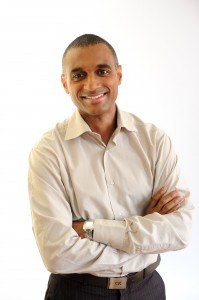
After more than 40 years of operation, DTVE is closing its doors and our website will no longer be updated daily. Thank you for all of your support.
Trace breaks new ground
Youth-skewed media group Trace is ramping up its activities in Africa and beyond, taking its brand past its existing confines. CEO Olivier Laouchez spoke to Stuart Thomson about the company’s plans.
Youth-oriented media group Trace has been focusing on expanding its footprint in Africa for some time now, but this year the company is accelerating the pace of development and expanding into new, hitherto unexplored areas.
First, Trace is mulling the launch of a subscription VoD service for sub-Saharan Africa in the first quarter of 2016 and has hired Nathalie Morley, the former creative director of Fashion TV, to head this up. Trace Play, as the project has been dubbed, will include “a huge component of African content” with music, kids shows and series that will be available across French and English-speaking sub-Saharan Africa, as well as French-speaking countries in Europe, according to Trace CEO Olivier Laouchez.
Trace also plans to develop scripted series and movies under the Trace Studios name. “We are going to invest in original production,” says Laouchez. The first projects are: Cote d’Ivoire-set series Pti Bisous, produced in partnership with local broadcaster RTI, Lagardère Entertainment-backed Diffa and Martica Productions; and movie Le Gang des Antillais, based on a true story about gangsters from the Caribbean island, starring Mathieu Kassovitz and Romane Bohringer. Trace has ambitions to develop more original productions, with former SABC executive Leo Manne, now Trace’s SVP in South Africa, charged with identifying projects. Laouchez says Trace will invest with partners in projects for which it could secure rights across both French and English-speaking markets.
Trace is developing a raft of other projects to expand its presence in Africa, including the launch of Trace Mobile in partnership with mobile operator Cell C. For this it is developing a streaming app with Universal Music that will include music, games and other content. “We are working with Universal to adapt music streaming to Africa,” says Laouchez, who adds that Trace has been working on this project for the last six months. The service will include the ability to download as well as stream content.
“Other music services do not have significant penetration in Africa. We can provide a service that offers adaptive streaming, but also the ability to download content as well – and not just international content but local African content,” he says.
Apart from music streaming, Trace Mobile could include elements such as a loyalty programme, providing VIP access to concerts, movies and clubs. Trace is also launching a new music TV channel, Trace Gospel, available in English and French, which Laouchez says will be “a 100% gospel music channel”, with a broad appeal across countries including Nigeria and even predominantly Muslim countries such as Senegal. “We are actively discussing distribution deals,” he says, adding that the first platform deal for the channel will likely be announced in November.
Trace is also considering launching Trace Gospel as a paid-for OTT app. Laouchez says that Trace remains wedded to the pay model. He points out that an advertising-supported distribution model requires scale, effectively requiring terrestrial distribution. “Even for them it’s a challenge,” he says.
Trace is also launching the third edition of its Trace Music Stars competition, where contestants record song entries by mobile with a chance to win a recording contract.
The company has struck a sponsorship deal with South African mobile operator Airtel to support the event. This year’s edition will likely involve the country finalists being taken to Atlanta in the US for the final stage. The competition will kick off in November, with the final to take place in April or May next year.
Partnership model
The final project in Trace’s current pipeline is the launch of Trace FM, a new radio station for Côte d’Ivoire, where the broadcaster has secured a national FM radio licence and a partnership with a local broadcast organisation. Laouchez says that Trace has an ambition to develop more radio services in other countries, for example in Cameroon, where it holds a local licence in Douala, the country’s largest city and economic hub.
Laouchez says that Trace plans to expand its presence “on the ground” across a number of territories, providing its brand to affiliate entities through partnerships. Trace is also taking its African formats further afield, for example by launching Trace Music Stars in France’s overseas territories and departments. The group is targeting the African diaspora more widely and looking to countries where African culture has a significant foothold, including the US and Brazil. Trace has already launched a Portuguese-language channel in Africa – Trace Toca, distributed on the DStv platform – and the company plans to take this to other Lusophone markets. Broader ambitions aside, however, its existing core territories will remain at the heart of Trace’s expansion strategy. “France and Africa remain our priorities,” says Laouchez.



